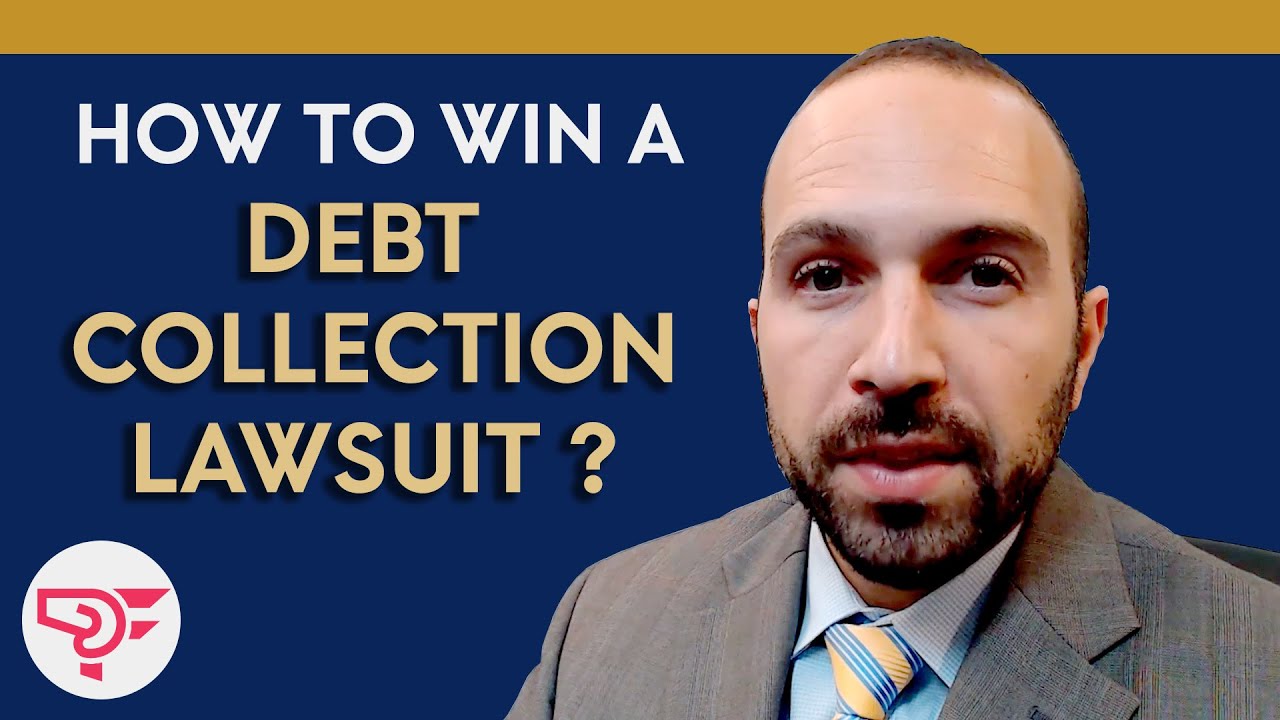How to Handle and Win a Debt Collection Lawsuit
How to Protect Yourself in a Debt Collection Lawsuit?
Today, we’re going to be talking about how to handle and win a debt collection lawsuit. Hi, my name is Mike Ziegler. I’m the managing attorney for the Debt Fighters. We’re a Florida law firm focusing on helping consumers to eliminate serious debt.
Let’s talk about four major steps, maybe five major steps. First is to get your head back on. For most people that I talk to when they had been sued in a debt collection lawsuit, that may be their first exposure to the court system. It’s intimidating when someone has filed a lawsuit, when a process server has come to your door and maybe they left the papers even with a family member, causing you embarrassment. The whole process seems overwhelming and intimidating. So often, the collection companies or the collection attorneys depend on you being intimidated in order to win on their side. First is to take that deep breath and start with a steady head.
Second is to develop your strategy. Review the paperwork. Do you actually recognize the debt? Do you recognize the charges? Those are questions that you should answer first. The other question is, is this debt your only problem, or are there other deaths? If there are other deaths, then you may want to look at a more comprehensive strategy like debt consolidation or bankruptcy, but find the strategic approach that’s right for you.
Third is to show up. What do I mean by that? For most debt collection lawsuits, you’ll get instructions in the lawsuit paperwork that says that you either have to file a response or that you have to attend a hearing. Just like you’ve heard so many times, 80% of success is showing up. The same holds true for the court system. If you don’t respond or appear when you’re required to, then the creditor is going to win by default or get what we call a default judgment. This means even if you believe that you don’t owe the obligation, you’re still going to be legally responsible for it, and you may even be garnished further down the line. Step three, the system supports those that participate.
Step four is going to be to carve out. Once you’ve gotten through those other steps and you’ve decided that you do want to participate in the lawsuit, is to see what the open questions are. Do you recognize the company that’s asking you to pay out this debt? It may be that at some point you had an obligation with a credit card company or some other lender, and they are claiming that they have acquired the debt. Now if you don’t know that, then that doesn’t mean that you have to agree to something that they’re participating or that they’re representing to the courts.
You can ask that they prove up their ability to enforce the debt. If you took out a credit card or another loan, and you’re being sued on those terms, view that contract in detail. You may have certain rights under that contract, for example, like the right to arbitration or otherwise, that may be to your benefit in the collection process. While each collection case may be a little bit different, don’t take for granted that just because you’ve been sued, that all the information in that lawsuit is accurate. You should be encouraged to ask questions and make sure that they meet their burden of proof.
Now one final tip. In most civil lawsuits, usually we all watch TV and we hear proof beyond a reasonable doubt. Now in civil courts, that’s not the burden of proof. The burden of proof is what we call preponderance of the evidence, means it has to be more likely than not. Just know that this isn’t going to be exactly like what you see on Law & Order, that there are going to be some requirements. If you have some questions, if you feel like the complexity of your lawsuit in Florida is beyond your comfort level, then I would encourage you to schedule a complimentary consultation with one of our qualified attorneys.


